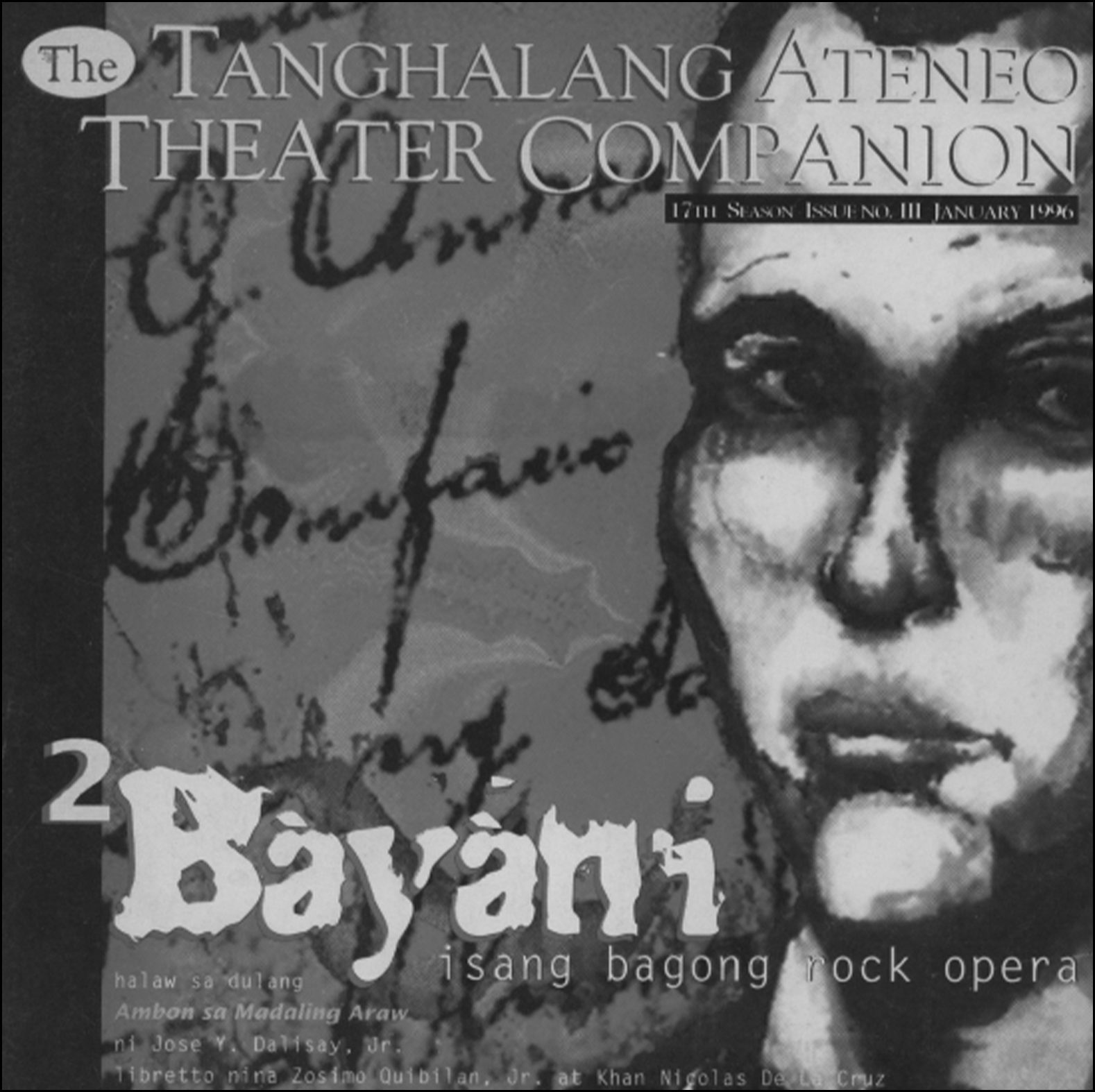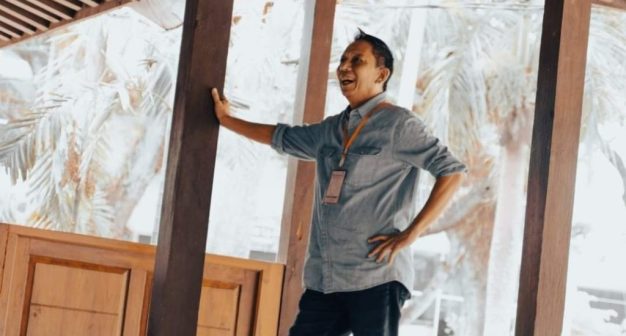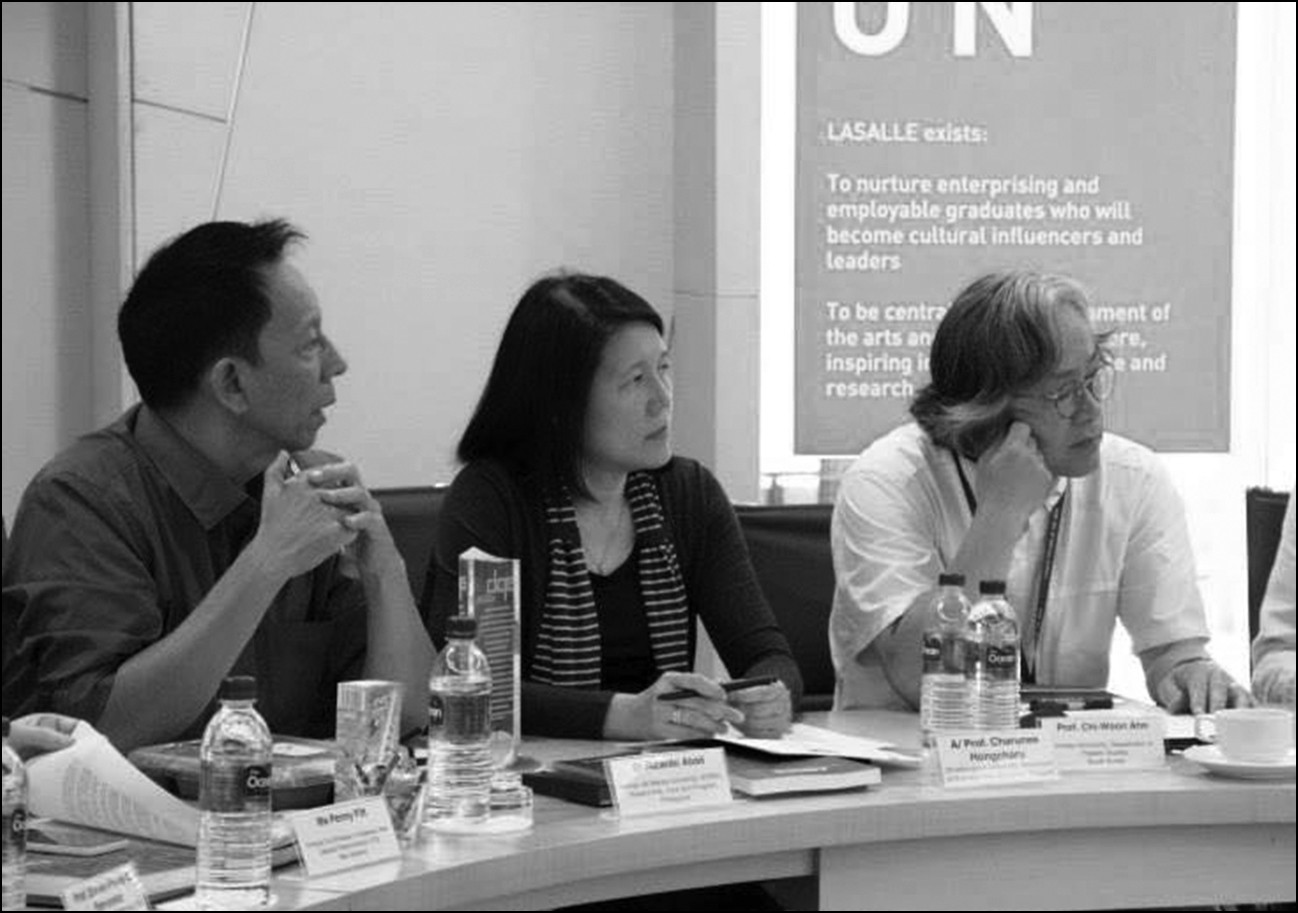A Sociological Imagination

He continued to write and teach sociology amid these engagements in the arts. But it was as a performance artist that Ricky Abad was able to infuse complex academic thought with a refreshing burst of creative energy. Cohort after cohort, his students offer inspiring testimonies about how they did not simply learn but lived as eyewitnesses on how he deftly combined science and theater, transforming cold demographic records into glowing figures in the most performative sense, simplifying the densest of theories with the most unlikely props on hand and, as well, serving illustrations of everyday life with jeepney drivers, waitresses, potters, barbers. His actors and production crew in the theater would recount the rigorous and often spirited but always kind demands he made of them. Ricky’s expressive style in public presentation generated numerous invitations for him to speak to various groups, locally and internationally, where he espoused the linkages between theater and society.
His research highlighting the quantitative aspects of sociology was as impressive as his innovative pedagogies. Dr Abad published pioneering Philippine studies on local migration, population, poverty, social stratification, inequality, social capital, welfare, human capital and education, informal economy, religiosity, citizen participation, popular culture, assessments of sociology, Asian globalization, and more. Underlying his scholarship was the application of Filipino perspectives in the development of social theory. As a sociologist, Ricky brought life and social significance to the numbers by asking the “Why” of survey results. In his “A Sociologist’s Memo: Invitation to a Proper Debunking” (1982) he challenged conventional thinking about social reality; as he would do with art and theater, his sociology trained him to be skeptical about conventional thinking yet take responsibility for bringing transformed truths into the limelight. As a colleague would note, that talent of “seamlessly crossing and demolishing boundaries to bring about new visions highlights the amazing and rare personality that was Ricky Abad.”
Given his outstanding achievements in research, teaching, and leadership in sociology and the arts, Dr Abad earned the rank of full professor as early as 1985. The designation enabled him to engage in further cutting-edge artistic and scholarly ventures with awards such as the Doreen Gamboa Fernandez Professorial Chair and the Frank Lynch Professorial Chair. In 2017, the Ateneo de Manila recognized his extraordinary achievements in both the fields of sociology and fine arts with the title, Professor Emeritus. Over the years, Professor Abad not only trained generations of students but also marshalled support for the training of their mentors. He was instrumental in identifying strategies for nurturing new generations of social scientists. He did this by reviewing the commentaries of young researchers marking 50 years of research at the IPC. Professor Abad underscored the critical task of creating a collegial research environment, enhancing the capacity to listen and learn, and imbuing lifelong commitment to values generated in the research process. His commitment to pedagogy and service knew no bounds.

Teaching was the vocation that traversed both sociology and the arts, and he was duly recognized for his accomplishments. Dr Ricky Abad’s excellence as a teacher endowed him with numerous awards from the Ateneo — Most Outstanding Senior Lay Teacher Award in 1993, A Lifetime Achievement Award in the Humanities, and a citation for Outstanding Work in Social Science. From society at large he was awarded the Metrobank Outstanding Teacher Award in 2001, and the Metrobank Award for Continuing Excellence and Service in 2009. Added to the list of teaching achievements were the different training programs he crafted and delivered nationwide and in the ASEAN region, among them the Teacher Training for Statistics and Research which he started in1987, the seminar on Philippine Cultural Values which he opened in 2006, and the Storytelling workshops for teachers which he initiated in 2012. Seeing the potential of applying theater practices for classroom teaching and group cohesion, Ricky launched workshops under the Dynamic Classrooms in 2010, going first to Loyola Schools, and then to different schools in the metropolitan areas giving students confidence to express themselves in class and teachers the skill to initiate active teaching methods.
Amid these projects he had time to write essays in sociology and the theater – director’s notes, online conference papers on social issues, book chapters, and journal articles that detail his work in intercultural theater. Beyond these, Ricky also served as regular juror for dramafests and playwriting contests such as the Palanca Awards.

In his 48 years at the Ateneo, Ricky Abad had crafted an interdisciplinary life that those at the Loyola Schools seek more of their faculty members to adopt as the school moves towards the implementation of new core curricula. In 2021, he advised fellow faculty members not to follow Robert Frost who saw “two roads diverged in a yellow wood,” and was “sorry that he could not travel both.” Ricky believed the teacher can travel both roads. To do so, teachers need only to cut and paste what they like best in the two worlds, create a niche in that “third space,” and work to enrich that space within the parameters of university life.